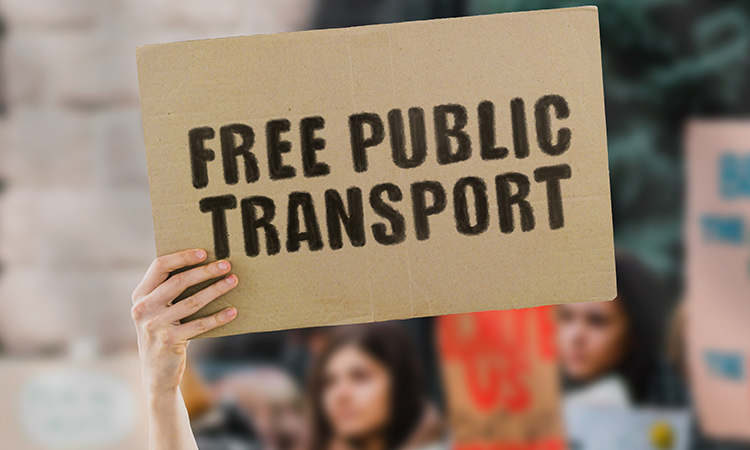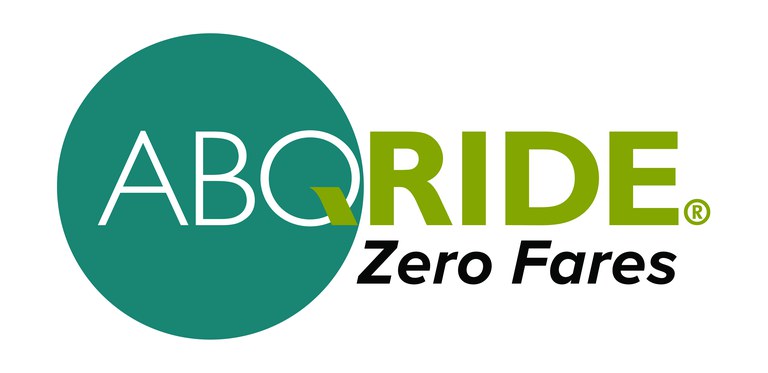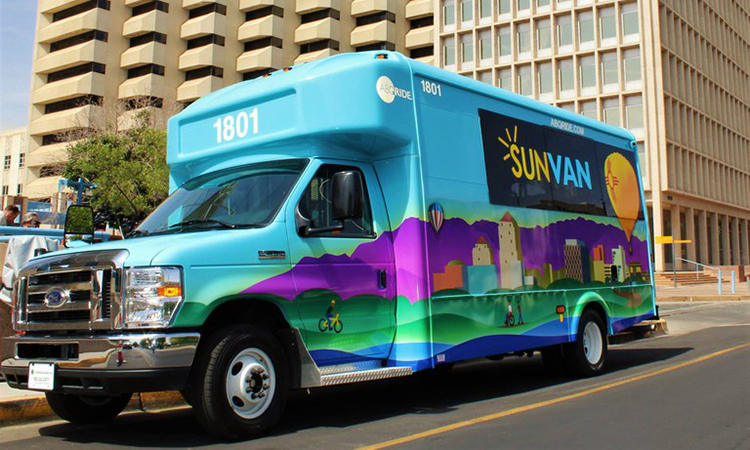Breaking financial barriers with fare-free services: Offering a more equitable transport system for transit-dependent riders
- Like
- Digg
- Del
- Tumblr
- VKontakte
- Buffer
- Love This
- Odnoklassniki
- Meneame
- Blogger
- Amazon
- Yahoo Mail
- Gmail
- AOL
- Newsvine
- HackerNews
- Evernote
- MySpace
- Mail.ru
- Viadeo
- Line
- Comments
- Yummly
- SMS
- Viber
- Telegram
- Subscribe
- Skype
- Facebook Messenger
- Kakao
- LiveJournal
- Yammer
- Edgar
- Fintel
- Mix
- Instapaper
- Copy Link
Posted: 9 January 2024 | Megan Holcomb - ABQ RIDE | No comments yet
After a successful pilot programme, Albuquerque’s ABQ RIDE is permanently adopting a fare-free model. The Zero Fares initiative, launched as a result of the challenges brought by COVID-19, resulted in a range of benefits for passengers and the operator alike, and this innovative move reflects Albuquerque’s commitment to equitable and accessible public transportation, setting a precedent for cities both nation and worldwide.
Exclusively for Intelligent Transport, Megan Holcomb, Public Information Officer at ABQ RIDE (City of Albuquerque), discusses why the city decided to shift to fare-free, what the impact has been on residents and how the decision is helping the operator to shift its focus to other challenges.


After a nearly two-year pilot programme, numerous data reports and feedback from community members, New Mexico’s largest public transportation system, ABQ RIDE, will permanently remain fare-free for all modes of transit (rapid transit, fixed route and paratransit services).
As many individuals in the community struggled to make ends meet [due to the impact of COVID-19], Albuquerque City Council responded with legislation to implement a 12-month Zero Fare Pilot Program to help to remove financial barriers”
The Zero Fares initiative began in Albuquerque at the start of 2021 after the city and state had experienced unprecedented challenges amid the COVID-19 pandemic. In response to a state-wide public health order requiring residents to limit travel outside of their homes, public transit in Albuquerque saw its lowest ridership numbers in recent history. In fiscal year 2021, ABQ RIDE served 3.9 million riders, which was a significant decrease in comparison to previous years, which averaged at about 9.5 million. As many individuals in the community struggled to make ends meet, Albuquerque City Council responded with legislation to implement a 12-month Zero Fare Pilot Program to help to remove financial barriers for transit-dependent riders while promoting equity.


Credit: City of Albuquerque
Studying similar initiatives to realise the benefits
Since its implementation in January 2022, ABQ RIDE has collected data on ridership, safety and security, as well as other metrics, to study the effects of free transit in Albuquerque”
As one of the largest cities in the U.S. to implement such a programme, there were few examples from other regions on the impact of free bus fares to both the community and the transit agency. The Kansas City Area Transportation Authority (KCATA) in Kansas City, Missouri, implemented a similar programme, which was evaluated to understand the changes that might occur, as well as the varying types of datasets that needed to be collected to accurately analyse the impact of zero fares on the department and the community. Since its implementation in January 2022, ABQ RIDE has collected data on ridership, safety and security, as well as other metrics, to study the effects of free transit in Albuquerque.
Throughout the 2022 calendar year, monthly data reports have shown a steady increase in ridership, while security incidents within the system grew only in relation to an increase of passengers. While evaluating agencies in other cities across the U.S. and the globe, it is clear that security concerns remain a factor, even when a fare is involved.
The impact of going fare-free on fare evasion incidents
By eliminating fares, we also eliminate the issue of fare evasion and reduce the opportunity for additional security incidents to occur”
ABQ RIDE also studied the issue of fare evasion among transit agencies that require riders to present a fare or valid bus pass. The study found that collecting fares increases interactions between drivers and passengers often leading to disputes which can easily escalate to assaults and/or batteries on bus drivers. A recently published article by transitcenter.org reveals that the standard practice of collecting fares can lead to violent interactions between drivers and passengers. By eliminating fares, we also eliminate the issue of fare evasion and reduce the opportunity for additional security incidents to occur.
Analysing the outcomes of the programme
After the initial year of the pilot programme in 2022, Zero Fares was extended for an additional nine months to allow time for a final report to be completed and submitted to the City Council. The report offered a deep dive into the pilot programme and helped to inform the final decision on the future fare structure at ABQ RIDE. A technical advisory team was formed to evaluate how the programme had impacted ABQ RIDE and the community at large. To ensure that the final report was fair and thorough, the technical team was comprised of staff from ABQ RIDE, Albuquerque City Council Services, the City of Albuquerque’s Office of Equity and Inclusion, and representatives from the Transit Advisory Board and the non-profit organisation, Albuquerque Healthcare for the Homeless. The final report submitted to Albuquerque City Council reported on ridership demographics and boarding data, security and cleanliness, and operational expenses and revenue loss.
In addition to eliminating fare disputes, ABQ RIDE and passengers also benefitted from faster boarding times, increased speed and reliability, and equitable access”
Overall, the benefits of Zero Fares for passengers, ABQ RIDE and the wider public outweighed the drawbacks for our community. In addition to eliminating fare disputes, ABQ RIDE and passengers also benefitted from faster boarding times, increased speed and reliability, and equitable access. In a city with a diverse culture and thriving community of small business owners, the implementation of Zero Fares also works to redirect economic growth toward the local economy. Without the need for bus fares, individuals and families are able to direct those funds toward other monthly expenses, like medical bills and groceries.
Supporting marginalised communities
By eliminating bus fares, the City of Albuquerque is ensuring that all transit-dependent riders have access to this essential service”
Passengers and community advocates expressed their experiences of how Zero Fares has removed barriers for minority and marginalised populations when it comes to the basic right of transportation. At the end of the day, the answer was simple. ABQ RIDE serves an average of 23,800 riders daily, 88% of whom live in households with an annual income of less than $35,000. More than half of our riders come from households without a car. By eliminating bus fares, the City of Albuquerque is ensuring that all transit-dependent riders have access to this essential service.
Becoming permanently fare-free across the entire ABQ RIDE system
In November 2023, the Albuquerque City Council approved O-23-89, officially making Zero Fares permanent for all services provided by ABQ RIDE. This decision was made after the council previously voted to eliminate fares for the city’s BRT line, Albuquerque Rapid Transit (ART), and the Sun Van Paratransit service in April 2023.


Credit: City of Albuquerque
Taking the opportunity to shift focus and further benefit passengers
With Zero Fares permanently in place, ABQ RIDE has been able to focus its efforts on ensuring a safe environment for all passengers and drivers. Our department has built a strong relationship with public safety partners within our city who work together to solve security issues that occur along our transit corridors. ABQ RIDE is also not immune to the national challenges of short staffing, particularly among vehicle mechanics and bus drivers. Since Zero Fares was made permanent, greater efforts have been made to lower department vacancy rates through two very successful hiring events in late October 2023. Between the two events, the Human Resources division of the department gave 76 conditional job offers to 44 bus drivers, 19 Sun Van Chauffeurs and 6 Mechanics. A third event is scheduled for mid-January 2024.
The mission of ABQ RIDE is to be the first choice in transportation services in the Albuquerque Metro area, and providing equitable access to those services through Zero Fares helps us to reach that goal”
The mission of ABQ RIDE is to be the first choice in transportation services in the Albuquerque Metro area, and providing equitable access to those services through Zero Fares helps us to reach that goal.
“Since the Zero Fare Pilot Program began, we have seen the impact that it has had on the lives of our neighbours and friends,” said Albuquerque Mayor, Tim Keller. “Zero Fares is one example of how Albuquerque is paving the way for cities across the nation to implement equity-based initiatives that benefit everyone.”
By removing barriers to public transportation, residents and visitors of Albuquerque can experience an accessible, equitable, sustainable and safe ride to their many destinations. By keeping a Zero Fare structure, the focus can be placed on utilising technology to promote a safer transit system for the future. In Albuquerque, the future of transit is free.


Related topics
Accessibility, COVID-19, Passenger Experience, Public Transport, Security & Crime, Ticketing & Payments, Transport Governance & Policy, Vehicle & Passenger Safety, Workplace
Related modes
Bus & Coach, Paratransit
Related cities
Albuquerque
Related countries
United States
Related organisations
ABQ RIDE, Albuquerque City Council, Albuquerque Healthcare for the Homeless, Albuquerque Rapid Transit (ART), City of Albuquerque, Kansas City Area Transportation Authority (KCATA), Sun Van Paratransit
Related people
Megan Holcomb, Tim Keller







